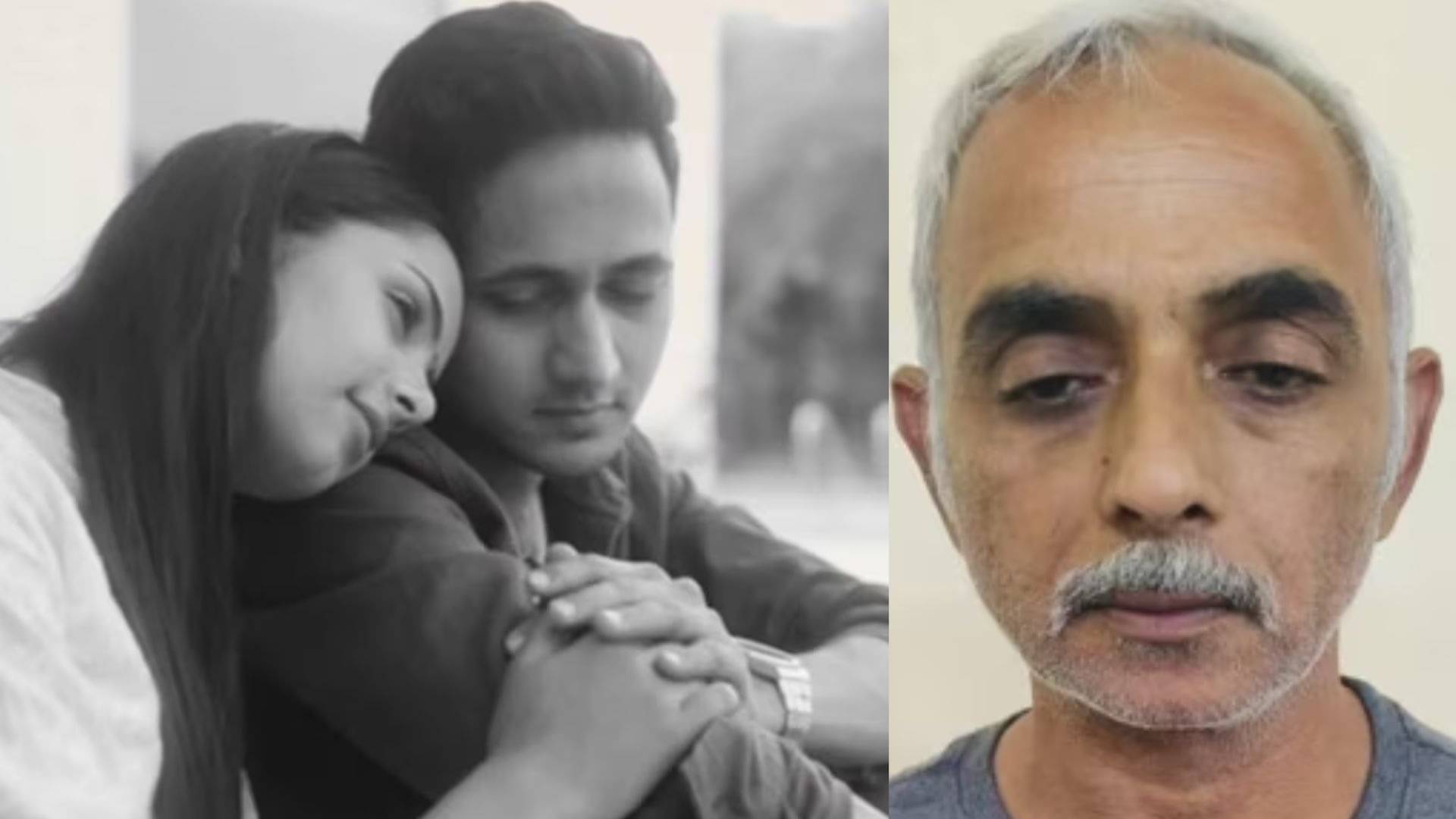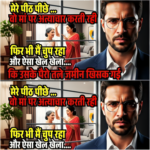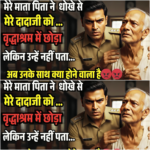Trial by Media and the Cost of Headlines: Inamul Haq’s Ordeal After Radhika Yadav’s Tragedy

When a nation’s conversations split along religious lines, tragedies rarely remain personal. In June 2024, India was shaken by the horrific murder of Radhika Yadav, a promising young tennis player from Delhi, killed by her own father. The case should have sent shockwaves about domestic violence, parental control, and women’s safety. Instead, it stirred a tempest of misinformation, communal narratives, and relentless character assassination — not only for the family but also for those peripherally linked, like musician and actor Inamul Haq.
This is the story of how media sensationalism, communal narratives, and misplaced public anger can devastate innocent lives — and how one artist is fighting back not just for his name, but for dignity, reason, and truth.
A Murder, An Accusation, and an Unexpected Target
The facts of Radhika Yadav’s murder were grim: her father, reportedly troubled by social taunts about living off his daughter’s earnings, confessed to killing her. But while the Delhi police investigated, another narrative had already hijacked television screens and WhatsApp groups: the so-called “Love Jihad” claim, focusing not on the father, but a Muslim musician named Inamul Haq.
Why? Because Radhika had appeared as an actress in a romantic music video alongside Haq — a single fleeting collaboration, but enough to light the communal fuse in an already polarized environment.
“When the news first broke,” Haq recalled in an emotional webcast, “media channels immediately started spinning stories around me — saying my name was not Inam but Zeeshan, or Abdul. Suddenly, hashtags and TV debates focused on the ‘Muslim angle’, not the murder itself.”
Sensational headlines read: “Tennis star killed by father after making a video with Muslim boy.” Social media bristled with comments: “This is Jihad, punish the boy!”, voices demanding action or retribution. For Inamul Haq, it was a Kafkaesque nightmare — becoming villain in a script he never wrote or acted in.
Weaponizing Identity: The Manufacturing of a ‘Scandal’
India’s mainstream and social media, starved for headlines and clickbait, moved quickly. Overnight, newsrooms became scriptwriters, each crafting their own version of a ‘Love Jihad’ melodrama. Some said Inamul met Radhika in Dubai (he hadn’t), others said his real name was something else, still others invented relationships out of thin air.
“It’s as if daily soap writers have been hired by news channels,” Haq said, frustration tinging his voice. “Everyone manipulated facts. Not one of them asked me about the reality before running their so-called exposes.”
While some responsible channels tried to present the facts, many others fanned the communal narrative, often showing Haq’s photograph next to inflammatory headlines. Soon, thousands — if not millions — believed he had lured Radhika into a relationship. The actual confession of her father became a footnote — the tragedy of a young woman’s murder, erased in favor of a manufactured scandal.
Caught in the Crossfire: Social Media Mob and Personal Suffering
With the media leading the charge, the mob followed. Haq’s personal accounts were inundated with hate messages, threats, and abuse. “Some people even said, ‘Kill this boy too.’ Others congratulated the girl’s father for his ‘honor’. It made me realize how desensitized and brutal public sentiment can become when fueled by misinformation.”
Worse, this digital mob began attacking Haq’s professional reputation. “People forget the toll this takes on our careers and lives,” he explained. “Casting directors see your name linked to a scandal, and you become untouchable overnight, even if you’re completely innocent.”
What hurt more than his personal ordeal was the wave of hate towards the late Radhika herself. “People were abusing her online, saying she deserved it — simply for acting in a music video or wearing certain clothes. No one cared for the truth, or the fact that her own mother was present on set. The language was so filthy — no woman deserves that, especially not someone who can no longer defend herself.”
What Really Happened? Behind the Music Video
Piecing together the actual story, away from the cacophony, is shockingly simple.
Haq and Radhika met during a sports entertainment event in Delhi. “She was ambitious, she wanted to try acting along with tennis,” Haq says. “Many athletes want to build a portfolio beyond sports.” Radhika’s mother was present at every stage, and all professional decisions were supervised.
A year after their brief acquaintance, Haq needed an actress for a new music video. After the original actor dropped out, he forwarded Radhika’s profile for casting — one among several options. She was selected because of her screen presence. The entire shoot, once again, was conducted under her mother’s supervision.
After the release of the video, the two had no personal contact; their relationship remained strictly professional. “She never complained, neither did her parents,” Haq asserts. “She even said her father liked the music. If they’d asked me to remove the video, I’d have removed it instantly.”
When asked about Radhika’s temporary deactivation of Instagram, Haq speculated it could have been due to a family bereavement. “There was never any talk about moral objections, attire, or anything else.”

Unmaking a Monster: The Invisible Burden of a ‘Communal’ Name
At the core of this witch hunt is a familiar theme in Indian media: translating every tragedy into a communal narrative, using Muslim identity as a shortcut for sensationalism.
“Had my name not been Inamul Haq,” he says, “this story never would have existed — at least not in this way.” Haq is quick to clarify: his body of work includes collaborations with artists from all backgrounds, Hindu and Muslim alike. “I never choose talent by religion, only by skill,” he said, noting that Radhika was just one of many actors he’s worked with.
“Yet, TV debates went on about ‘Love Jihad’ — as if a creative collaboration equals conspiracy,” Haq lamented. “It’s because of my name. No one remembered I’ve done 150 episodes for major shows, or my web series — just one music video, and all that matters are the rumors.”
This media firestorm, he believes, has hurt more than just his reputation. “This is a tragedy about a girl’s death, about violence and toxic patriarchy. Instead of focusing on that, society made me the punchline of its communal script.”
Beyond Publicity: The Price of Wrong Headlines
The notion that ‘all publicity is good publicity’ rings hollow when the stakes are your livelihood and sanity.
“People assume this will help me,” he says, “but I’ve always had enough recognition, enough work. I don’t want fame at this price, linked to someone’s murder.” He says that even if the music video’s popularity increases, any revenue will not go to him. “I plan to donate every rupee to charity. I can’t, I won’t profit from this pain.”
The cost, meanwhile, is heavy: “I now walk into any professional setting and the first question is about the case. How do I explain myself to everyone, every time? Who will return to apologize after I’m cleared? No one. My career, my peace of mind, have both been collateral damage.”
Request for Compassion — and Justice
In the wire interview, Haq appeals for a return to decency, both in language and attitude. “People talk about Radhika as if she was less than human. She worked hard to be an athlete; being in a music video was her choice, and her right. She can no longer defend herself. Don’t use her memory this way.”
He asks that if any investigation is needed, he will cooperate fully — his call records, chats, everything. “I’m an Indian citizen; the police can ask me anything, anytime.”
Most of all, he pleads: “Don’t make me or anyone a scapegoat for a tragedy we didn’t cause — just because of our names or backgrounds.”
The Real Tragedy: When Sensationalism Drowns Out Truth
The murder of Radhika Yadav was grim enough. Its transformation into a national circus has added layers of agony for the innocent. When ‘Love Jihad’ becomes a reflex, the line between fact and fantasy blurs dangerously. For people like Inamul Haq, and for Radhika’s family, healing becomes impossible beneath the media’s glare and the internet’s avalanche of hate.
As India marches ahead, the real question is: can it mourn its daughters with dignity? Can it stand up for facts, or will it remain addicted to the poison of soap-opera headlines?
When a nation’s conversations split along religious lines, tragedies rarely remain personal. In June 2024, India was shaken by the horrific murder of Radhika Yadav, a promising young tennis player from Delhi, killed by her own father. The case should have sent shockwaves about domestic violence, parental control, and women’s safety. Instead, it stirred a tempest of misinformation, communal narratives, and relentless character assassination — not only for the family but also for those peripherally linked, like musician and actor Inamul Haq.
This is the story of how media sensationalism, communal narratives, and misplaced public anger can devastate innocent lives — and how one artist is fighting back not just for his name, but for dignity, reason, and truth.
A Murder, An Accusation, and an Unexpected Target
The facts of Radhika Yadav’s murder were grim: her father, reportedly troubled by social taunts about living off his daughter’s earnings, confessed to killing her. But while the Delhi police investigated, another narrative had already hijacked television screens and WhatsApp groups: the so-called “Love Jihad” claim, focusing not on the father, but a Muslim musician named Inamul Haq.
Why? Because Radhika had appeared as an actress in a romantic music video alongside Haq — a single fleeting collaboration, but enough to light the communal fuse in an already polarized environment.
“When the news first broke,” Haq recalled in an emotional webcast, “media channels immediately started spinning stories around me — saying my name was not Inam but Zeeshan, or Abdul. Suddenly, hashtags and TV debates focused on the ‘Muslim angle’, not the murder itself.”
Sensational headlines read: “Tennis star killed by father after making a video with Muslim boy.” Social media bristled with comments: “This is Jihad, punish the boy!”, voices demanding action or retribution. For Inamul Haq, it was a Kafkaesque nightmare — becoming villain in a script he never wrote or acted in.
Weaponizing Identity: The Manufacturing of a ‘Scandal’
India’s mainstream and social media, starved for headlines and clickbait, moved quickly. Overnight, newsrooms became scriptwriters, each crafting their own version of a ‘Love Jihad’ melodrama. Some said Inamul met Radhika in Dubai (he hadn’t), others said his real name was something else, still others invented relationships out of thin air.
“It’s as if daily soap writers have been hired by news channels,” Haq said, frustration tinging his voice. “Everyone manipulated facts. Not one of them asked me about the reality before running their so-called exposes.”
While some responsible channels tried to present the facts, many others fanned the communal narrative, often showing Haq’s photograph next to inflammatory headlines. Soon, thousands — if not millions — believed he had lured Radhika into a relationship. The actual confession of her father became a footnote — the tragedy of a young woman’s murder, erased in favor of a manufactured scandal.
Caught in the Crossfire: Social Media Mob and Personal Suffering
With the media leading the charge, the mob followed. Haq’s personal accounts were inundated with hate messages, threats, and abuse. “Some people even said, ‘Kill this boy too.’ Others congratulated the girl’s father for his ‘honor’. It made me realize how desensitized and brutal public sentiment can become when fueled by misinformation.”
Worse, this digital mob began attacking Haq’s professional reputation. “People forget the toll this takes on our careers and lives,” he explained. “Casting directors see your name linked to a scandal, and you become untouchable overnight, even if you’re completely innocent.”
What hurt more than his personal ordeal was the wave of hate towards the late Radhika herself. “People were abusing her online, saying she deserved it — simply for acting in a music video or wearing certain clothes. No one cared for the truth, or the fact that her own mother was present on set. The language was so filthy — no woman deserves that, especially not someone who can no longer defend herself.”
What Really Happened? Behind the Music Video
Piecing together the actual story, away from the cacophony, is shockingly simple.
Haq and Radhika met during a sports entertainment event in Delhi. “She was ambitious, she wanted to try acting along with tennis,” Haq says. “Many athletes want to build a portfolio beyond sports.” Radhika’s mother was present at every stage, and all professional decisions were supervised.
A year after their brief acquaintance, Haq needed an actress for a new music video. After the original actor dropped out, he forwarded Radhika’s profile for casting — one among several options. She was selected because of her screen presence. The entire shoot, once again, was conducted under her mother’s supervision.
After the release of the video, the two had no personal contact; their relationship remained strictly professional. “She never complained, neither did her parents,” Haq asserts. “She even said her father liked the music. If they’d asked me to remove the video, I’d have removed it instantly.”
When asked about Radhika’s temporary deactivation of Instagram, Haq speculated it could have been due to a family bereavement. “There was never any talk about moral objections, attire, or anything else.”
Unmaking a Monster: The Invisible Burden of a ‘Communal’ Name
At the core of this witch hunt is a familiar theme in Indian media: translating every tragedy into a communal narrative, using Muslim identity as a shortcut for sensationalism.
“Had my name not been Inamul Haq,” he says, “this story never would have existed — at least not in this way.” Haq is quick to clarify: his body of work includes collaborations with artists from all backgrounds, Hindu and Muslim alike. “I never choose talent by religion, only by skill,” he said, noting that Radhika was just one of many actors he’s worked with.
“Yet, TV debates went on about ‘Love Jihad’ — as if a creative collaboration equals conspiracy,” Haq lamented. “It’s because of my name. No one remembered I’ve done 150 episodes for major shows, or my web series — just one music video, and all that matters are the rumors.”
This media firestorm, he believes, has hurt more than just his reputation. “This is a tragedy about a girl’s death, about violence and toxic patriarchy. Instead of focusing on that, society made me the punchline of its communal script.”
Beyond Publicity: The Price of Wrong Headlines
The notion that ‘all publicity is good publicity’ rings hollow when the stakes are your livelihood and sanity.
“People assume this will help me,” he says, “but I’ve always had enough recognition, enough work. I don’t want fame at this price, linked to someone’s murder.” He says that even if the music video’s popularity increases, any revenue will not go to him. “I plan to donate every rupee to charity. I can’t, I won’t profit from this pain.”
The cost, meanwhile, is heavy: “I now walk into any professional setting and the first question is about the case. How do I explain myself to everyone, every time? Who will return to apologize after I’m cleared? No one. My career, my peace of mind, have both been collateral damage.”
Request for Compassion — and Justice
In the wire interview, Haq appeals for a return to decency, both in language and attitude. “People talk about Radhika as if she was less than human. She worked hard to be an athlete; being in a music video was her choice, and her right. She can no longer defend herself. Don’t use her memory this way.”
He asks that if any investigation is needed, he will cooperate fully — his call records, chats, everything. “I’m an Indian citizen; the police can ask me anything, anytime.”
Most of all, he pleads: “Don’t make me or anyone a scapegoat for a tragedy we didn’t cause — just because of our names or backgrounds.”
The Real Tragedy: When Sensationalism Drowns Out Truth
The murder of Radhika Yadav was grim enough. Its transformation into a national circus has added layers of agony for the innocent. When ‘Love Jihad’ becomes a reflex, the line between fact and fantasy blurs dangerously. For people like Inamul Haq, and for Radhika’s family, healing becomes impossible beneath the media’s glare and the internet’s avalanche of hate.
As India marches ahead, the real question is: can it mourn its daughters with dignity? Can it stand up for facts, or will it remain addicted to the poison of soap-opera headlines?
News
उस दिन के बाद ऑफिस का पूरा माहौल बदल गया। अब कोई भी किसी की औकात या कपड़ों से तुलना नहीं करता था। सब एक-दूसरे की मदद करने लगे। अर्जुन सबसे प्रेरणा देने वाला इंसान बन गया। रिया भी अब पूरी तरह बदल चुकी थी। वह विनम्रता से छोटे काम करने लगी और धीरे-धीरे सबका विश्वास जीतने की कोशिश करने लगी।
चायवाले से मालिक तक: इंसानियत की असली पहचान सुबह-सुबह जयपुर शहर की सबसे बड़ी मल्टीनेशनल कंपनी के ऑफिस के गेट…
रिया फूट-फूट कर रो पड़ी। उसके सारे सपने, घमंड और अभिमान पल भर में टूट गए थे। बाकी सभी कर्मचारी भी कांप गए। सब सोचने लगे, “हे भगवान, हमने भी कल उस चायवाले की हंसी उड़ाई थी। अब अगर मालिक को याद आ गया तो हमारी भी छुट्टी हो जाएगी।”
चायवाले से मालिक तक: इंसानियत की असली पहचान सुबह-सुबह जयपुर शहर की सबसे बड़ी मल्टीनेशनल कंपनी के ऑफिस के गेट…
दूसरे दिन का माहौल चायवाले से मालिक तक: इंसानियत की असली पहचान
चायवाले से मालिक तक: इंसानियत की असली पहचान सुबह-सुबह जयपुर शहर की सबसे बड़ी मल्टीनेशनल कंपनी के ऑफिस के गेट…
चायवाले से मालिक तक: इंसानियत की असली पहचान
चायवाले से मालिक तक: इंसानियत की असली पहचान सुबह-सुबह जयपुर शहर की सबसे बड़ी मल्टीनेशनल कंपनी के ऑफिस के गेट…
I gave a drenched old man shelter in my home. The next morning, he offered to buy my house for $1. “I’m not joking,” he said. “I can’t explain, but you need to leave it immediately.”
I gave a drenched old man shelter in my home. The next morning, he offered to buy my house for…
शीर्षक: “शिखर पर अहंकार नहीं, इंसानियत टिकती है”
शीर्षक: “शिखर पर अहंकार नहीं, इंसानियत टिकती है” सुबह के दस बजे थे। शहर के सबसे आलीशान रेस्टोरेंट “एमराल्ड टैरेस…
End of content
No more pages to load






